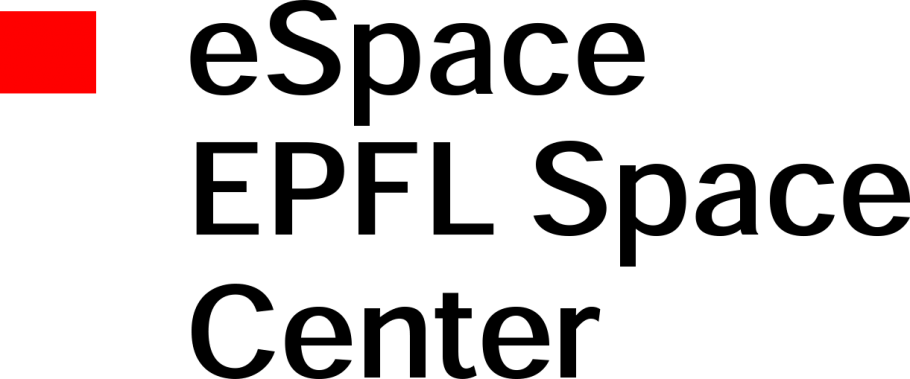Speakers
(in alphabetical order)

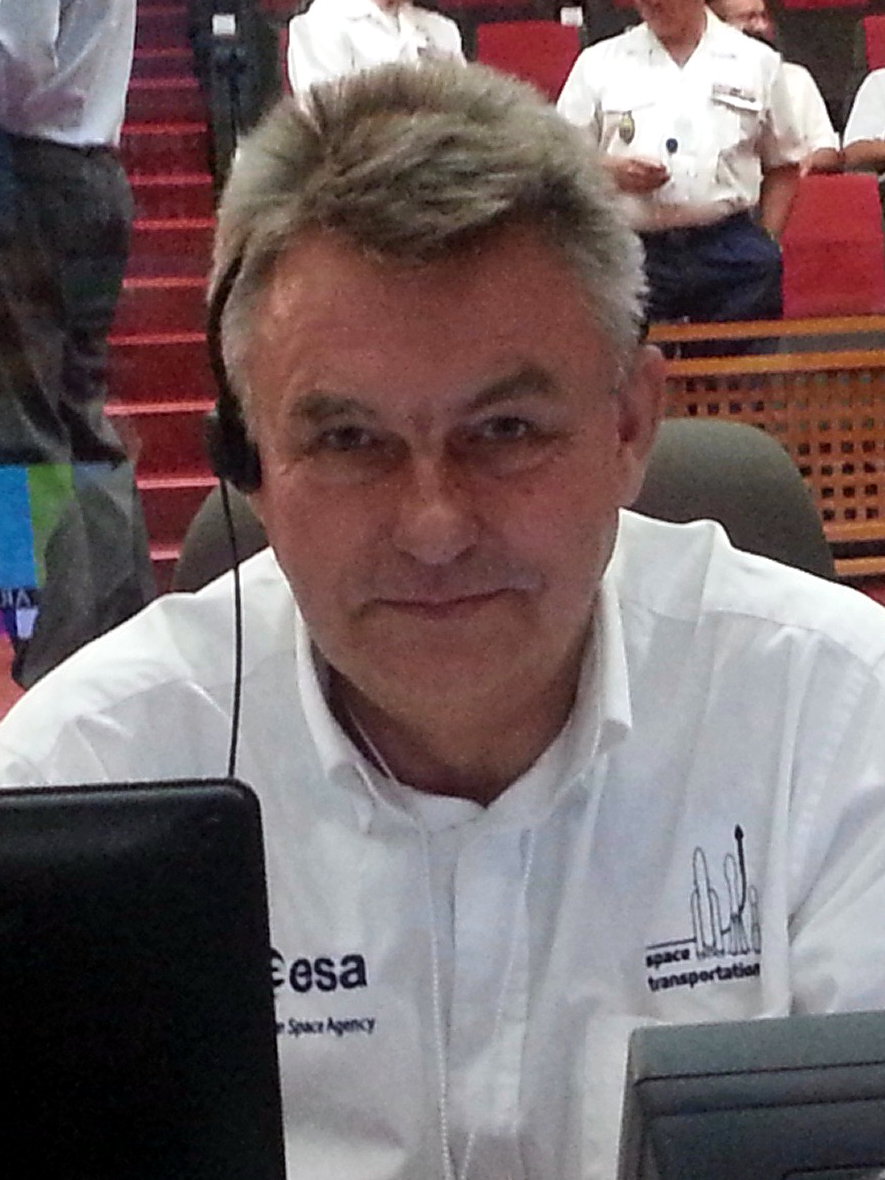
Rüdeger Albat
@esa
Rüdeger Albat is Head of Ariane 5 and Future Preparation at the European Space Agency (ESA). He's a Aerospace Engineer from Technische Universität München (1986).
He was involved in more than 50 active Ariane 1 to Ariane 5 launches, in many different operational roles.
He worked at Arianespace in launch teams, in production teams, as change manager, as cost killer and as head of launcher engineering. He was also Head of Ariane Development and Head of Ariane Exploitation at ESA.
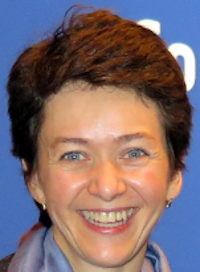
Natália Archinard
Dr Natália Archinard holds the space portfolio at the Federal Department of Foreign Affairs of Switzerland. She has been leading the Swiss delegation to the United Nations Committee on the Peaceful Uses of Outer Space (COPUOS) for more than a decade and serves as the Chair of the Scientific and Technical Subcommittee of COPUOS for the period 2020-2021.
Ms Archinard has been representing the Swiss government in multilateral negotiations on space security and sustainability-related initiatives, including the development of the Guidelines on the Long-term Sustainability of Outer Space Activities within COPUOS (2011-2019) and the draft International Code of Conduct proposed by the European Union (2012-2015). She is member of the Swiss delegations to the European Space Agency (ESA), including at ministerial level, and to the United Nations General Assembly 1st and 4th Committees.
At national level, she is involved in the design and the implementation of the Swiss space policy. Dr Archinard was educated in mathematics at the University of Geneva and obtained her PhD from the Swiss Federal Institute of Technology (ETH) Zurich in 2000.
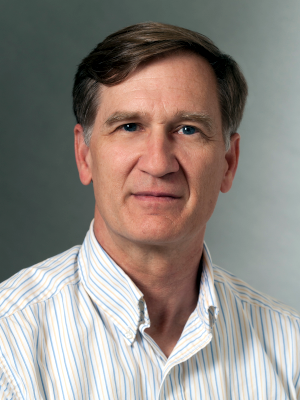
David Barnhart
@USC_Astro
David Barnhart is an active Research Professor in the Department of Astronautical Engineering at USC, the Director/Co- Founder of the USC Space Engineering Research Center at the Information Sciences Institute (ISI), and co-founder/CEO of Arkisys Inc.
He specializes in developing innovative technologies and architectures for 2nd generation space morphologies, RPO technologies/techniques, and hands-on projects with students, faculty and staff through an “engineering teaching hospital” construct. Over 250 students have graduated through the SERC’s laboratories to-date.
David Barnhart was a senior space Project Manager at DARPA, pioneering cellular spacecraft morphologies, satbotics, space robotics and low cost high volume manufacturing on the Phoenix and SeeMe projects. Prior to USC and DARPA, he helped initiate two commercial space companies; co-founding and serving as VP and CFO for Millennium Space Systems in Los Angeles CA; and elected member of a startup in Bremen, Vanguard Space, one of the first companies working commercial spacecraft servicing.
He started his career as a civilian for the Air Force Research Labs spending over 13 years helping to birth several notable innovations in micro-miniature electronic technologies, micro-chemical/electric propulsion systems, some of the first small satellites for remote observations, and the first independent RPO missions. David Barnhart has a BS from Boston University and ME from Virginia Tech both in Aerospace and Ocean engineering. He has published over 50 research papers and articles and speaks on 2nd generation space technologies nationally and internationally.
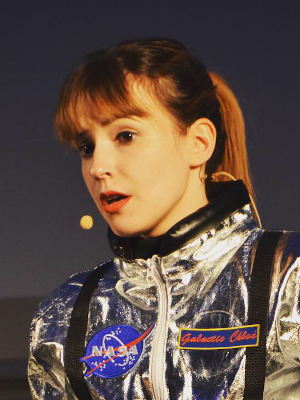
Chloé Carrière (update: replaced by Kevin Pahud)
@Galactic_Chloe
Chloé Carrière - "Galactic Chloé" - studies management of space technologies at EPFL, where she is busy bringing science communication about astronomy, astrophysics, cosmology, space missions and space engineering to the public through engaging public appearances, events, and social media.
She is the creator of Space@yourService, which organizes Astronomy on Tap events in Lausanne, has co-produced science videos for Swiss public broadcaster RTS, and her science communication talk, « The Science behind Moonwalking », earned her an audience prize from FameLab - despite being the only undergraduate entry among all of the PhDs.
Last year, she spent the summer at swissnex San Francisco as a Pier 17 Science Communication Fellow, where she developed immersive interdisciplinary projects to engage the public and students in space exploration. Her most ambitious project at this day is a student-led space analogue mission in Switzerland entitled Mission Asclepios: a do-it-yourself space mission. Most recently, she launched her own talk show featuring the EPFL community in a brand new light, called "the Galactic Chloé Show", which earned her the title of NexGen Hero 2020 by the Digital Economy Award.
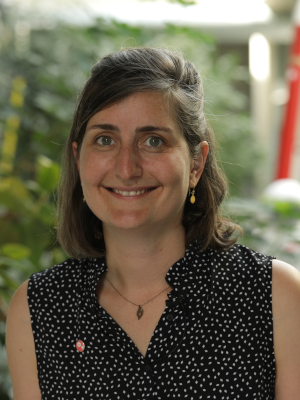
Emmanuelle David
@Numhero
Emmanuelle David is the executive manager of the EPFL Space Center. The EPFL Space Center (eSpace) is an interdisciplinary unit responsible for the federation of space activities at the school and leads a research initiative on sustainable space logistics.
Emmanuelle has 10 years’ experience in space transportation in academia, agency and industry from pre-development projects up to launch operations. She holds Space Engineering degrees both from the University of Technology of Compiegne, France, and the Technical University of Braunschweig, Germany.
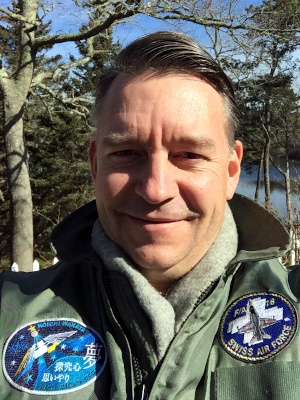
Olivier De Weck
@olivier_de_weck
Olivier de Weck is Professor of Aeronautics and Astronautics and Engineering Systems at MIT where he teaches Technology Roadmapping, Satellite Engineering and Systems Engineering as well as Multidisciplinary Design Optimization. He has authored over 400 publications (12 best paper awards since 2004) and is a Fellow of INCOSE, Associate Fellow of AIAA and Senior Member of IEEE. He served as Chair of the AIAA Technical Committee on Space Logistics from 2007-2010, and Editor-in-Chief for the journal Systems Engineering from 2013-2018.
He and his group worked with NASA’s Office of Emerging Space to develop new Commercial Space Technology Roadmaps in 2018 and he is a former Senior Vice President of Technology Planning and Roadmapping at Airbus where he was responsible for roadmapping a $1 billion R&D portfolio for the world’s largest aircraft manufacturer. His passion is to improve life on our home planet Earth through research and education in systems engineering and space logsitics while paving the way for humanity’s future off-world settlements.
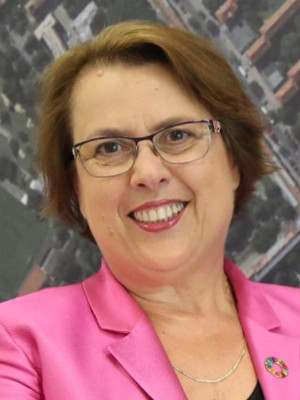
Simonetta Di Pippo
@SDiPippo_OOSA
Simonetta Di Pippo is Director of UN Office for Outer Space Affairs (UNOOSA), a position which sees her lead the Office’s strategic, policy and programmatic activities and advising the UN Secretary-General on space affairs. Prior to joining UNOOSA, she served as Director of Human Spaceflight at the European Space Agency, and previously also as Director of the Observation of the Universe at the Italian National Space Agency, ASI. She is an Academician of IAA and a member of WEF Global Future Council on Space Technologies since 2016 and its co-chair since 2020. She co-founded Women in Aerospace Europe in 2009 and in 2017 became a UN International Gender Champion.
She holds a Master’s Degree in Astrophysics and Space Physics from University “La Sapienza”, and Honoris Causa Degree in Environmental Studies, and an Honoris Causa Degree of Doctor in International Affairs. Ms. Di Pippo was knighted by the President of the Italian Republic in 2006 and, in 2008, the International Astronomical Union assigned the name "dipippo" to asteroid 21887 in recognition of her efforts in space exploration. She was also featured in a publication HERstory: A Celebration of Leading Women in the United Nations, a tribute to women’s participation in the development of the UN. Among other awards, she was awarded the Hubert Curien Award in 2018 as the first woman laureate.
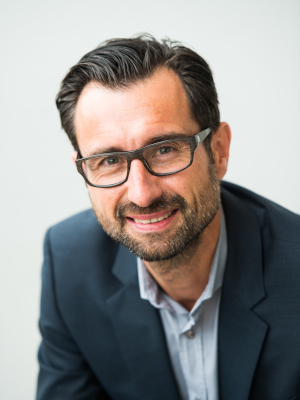
Klaus Dohrmann
@klausdohrmann
Dr. Klaus Dohrmann is Vice President Sector Development for DHL Customer Solutions and Innovation (CSI). His team is responsible for the strategic development and positioning of DHL’s global cross-divisional focus sectors Engineering & Manufacturing, Energy, Auto-Mobility, Technology, as well as e-Retail & Fashion. This involves driving the success of the global sectors in close collaboration with DHL’s top customers, divisions and innovation teams.
Klaus joined DPDHL Corporate Development department in 2008, advanced his position to become head of strategy for DHL Customer Solutions and Innovation (CSI) and Vice President Sector Development Engineering & Manufacturing, Energy before taking over his current role.
He holds a Diploma in business administration and a Diploma in economics from the University of Hagen, Germany. In 2015 he completed his PhD titled “Electric vehicles for last-mile delivery – an economic analysis” at the University of Duisburg-Essen (3rd place Science Award for Supply Chain Management, BVL).
Klaus Dohrmann is a well-respected industry speaker and has published papers on his specialist subjects including: “Building the World - Engineering & Manufacturing 2025+”, “Servitization and Supply Chains”, “Digital Twins in Logistics”, Risk and Resilience in Industrial Manufacturing” and “Electric vehicles for last-mile delivery – an economic analysis” (German).
In his most recent publication Klaus provided his perspective on how businesses can recover from the COVID-19 crisis into the “new normal” and the role of supply chains for future success: POST-CORONAVIRUS SUPPLY CHAIN RECOVERY: The Journey to the New Normal
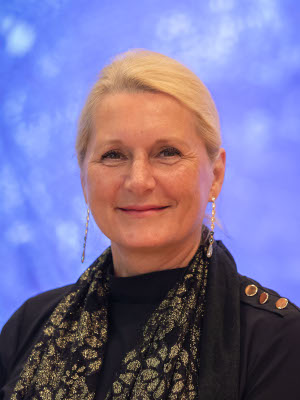
Pascale Ehrenfreund
@iafastro
Pascale Ehrenfreund is Research Professor of Space Policy and International Affairs at the Space Policy Institute/George Washington University in Washington DC. She is also the President of the International Astronautical Federation IAF and Chancellor of the International Space University ISU. Since three decades she contributed as Principal Investigator, Co-Investigator and Teamleader to ESA and NASA astronomy and planetary missions as well as experiments in low Earth orbit and on the International Space Station.
Pascale Ehrenfreund served as the Chair of the Executive Board of the German Aerospace Center (DLR) between 2015-2020 and the President of the Austrian Science Fund (FWF) from 2013-2015. Pascale Ehrenfreund holds a Master degree in Molecular Biology, a PhD in Astrophysics, and a Master degree in Management & Leadership. The asteroid "9826 Ehrenfreund 2114 T-3" bears her name.
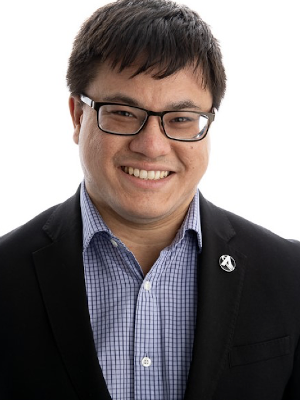
Jason Forshaw
@astroscale_HQ
Dr Jason Forshaw is the Head of Future Business (Europe) at Astroscale. Reporting to the Chief Commercial Officer within the global business development office, Dr Forshaw addresses all aspects of future business, including business development, growth of the sales pipeline, and developing R&D strategy for future products and services.
Dr Forshaw’s is a chartered engineer, and his alma maters include University of Sheffield, Virginia Tech (visiting student), University of Surrey and Stanford University. Dr Forshaw’s industrial experience includes Surrey Space Centre, QinetiQ, Rolls-Royce, and BAE Systems; his background and doctorate in guidance, navigation & control (GNC) gives him an grounding in Rendezvous and Proximity Operations (RPO).
A recognized expert in the field of space debris, Dr Forshaw has worked on several pioneering missions in this domain: ESA’s SOADR studies, RemoveDebris (formerly as the Consortium Project Manager), ELSA-d (as the Licensing Manager), and the ESA Sunrise programme.
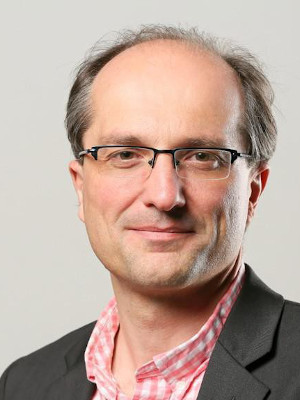
Jean-Paul Kneib
@jpkneib
Prof. Jean-Paul Kneib is head of EPFL Laboratory of Astrophysics and was appointed Director of EPFL Space Center eSpace on July 1st, 2017.
Jean-Paul Kneib holds a Master in Astrophysics and Space Technology and a PhD in Astrophysics. He has worked as a support astronomer, at ESO in Chile. He has conducted research in Gravitational Lensing and Cosmology in Cambridge (UK), Toulouse, Caltech and Marseille before coming to EPFL. He has worked with data coming from various space observatories (HST, XMM-Newton, Herschel, ISO, Chandra, Spitzer, WISE), and participated in many space projects ideas (SNAP, JDEM, SPACE, OMEGA, CoWeX).
He is currently strongly involved in the Euclid space mission.He has been a member of the ESA Astronomy Working Group, and of the Hubble Space Telescope User Committee. Currently, he serves on XMM-Newton, Hubble and James Webb Space Telescope time allocation committees.
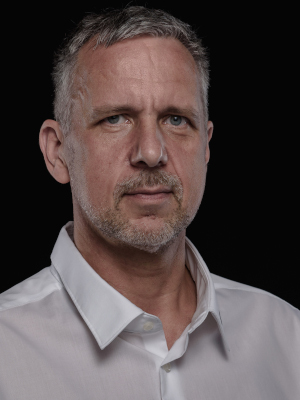
Torsten Kriening
@TKriening
Torsten Kriening is Publisher and CEO of SpaceWatch.Global. He is a business development executive with academic and professional experience in space management, satellite communications, and broadcast technology. He has an electrical and telecommunications engineering background and studied information technology and computer science at the Technical College Berlin. Torsten began his career as a software developer, before moving into sales management and business development, working at companies including 3Com, Lucent Digital Video, SES Astra, Bertelsmann and PTScientists.
A proud Berliner with a global outlook, Torsten expanded his horizons even further by attending the International Space University (ISU) and earning an Executive MBA. His ISU thesis analysed the capacity-building visions and opportunities of countries in the Gulf region, and he brings experience developing strong and lasting business relationships with Middle Eastern countries.
At SpaceWatch.Global, Torsten is putting his business acumen to good use in his operations and business development role, specialising in international partnerships and information analysis. He has been instrumental in successfully identifying new market opportunities and takes pride in building strong customer relationships that benefit all partners, combining his business intelligence with an ability to understand complex technical information from the market and clients.
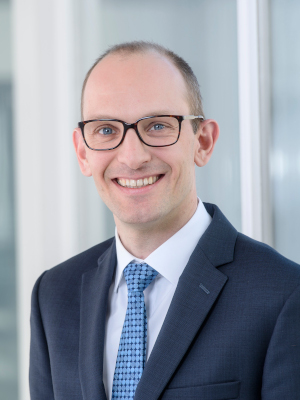
Renato Krpoun
@krpoun
Renato Krpoun is Head of Swiss Space Office. He holds a Doctorate in Microsystems and Microelectronics from the Swiss Federal Institute of Technology in Lausanne (EPFL) and an MBA degree from the University of St. Gallen.
The Swiss Space Office is responsible for the preparation and implementation of space policy in Switzerland. In his capacity, Dr. Krpoun is the Head of the Swiss Delegation to ESA at delegate level and chairs the interdepartmental coordination committee for space activities (IKAR) of the Swiss government. He is also member of the Board of Trustees of the International Space Science Institute (ISSI).
Born in 1978, Dr. Krpoun obtained his engineering degrees from the Swiss Federal Institute of Technology in Lausanne (EPFL) and an MBA from the University of St. Gallen. He has devoted his professional career to the space sector and has been the co-initiator of the first Swiss satellite “SwissCube”, which was launched in 2009. Prior to joining the Swiss Space Office, Dr. Krpoun held several positions in academia and industry. Amongst others, he was responsible for setting up a subsidiary of a Swiss aerospace and defence group in Huntsville, Alabama (USA). He has lived and worked in Switzerland, Brazil, as well as in the United States.
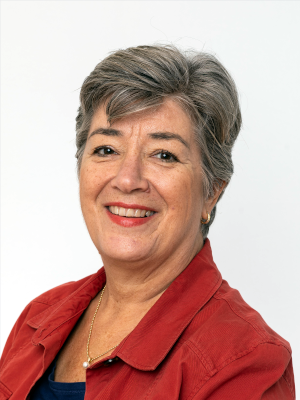
Tanja Masson-Zwaan
@tanjamasson
Tanja Masson-Zwaan is Assistant Professor and Deputy Director of the International Institute of Air and Space Law at Leiden University, and President Emerita of the International Institute of Space Law (IISL). She is adjunct faculty at International Space University (ISU).
Tanja advises the Dutch Government on space law issues and was co-founder of the Hague International Space Resources Governance Working Group.
She co-authored the 4th edition of ‘Introduction to Space Law’ (Kluwer 2019) and serves on the Board of Editors of Kluwer’s journal Air and Space Law.
She is an elected full member of various professional associations, such as the International Academy of Astronautics, the International Law Association, and the Académie de l’Air et de l’Espace. Tanja is a Board member of several organizations, including the ASU Interplanetary Initiative, Open Lunar Foundation and Space Generation Advisory Council. She was a Member of the Founding Boards of the European Centre for Space Law and of Women in Aerospace Europe and served as member of the Advisory Committee of Secure World Foundation from 2015-2020.
Tanja received several awards, and is a Member of Honour of the Netherlands Space Society (NVR). In 2020 she received a Royal decoration for her work in the field of space law.
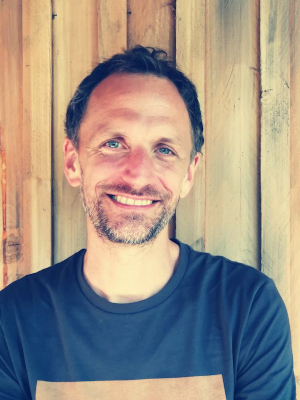
Markus Mooslechner
@mmooslechner
Markus Mooslechner is a Vienna/Austria based filmmaker, TV host and science communicator. He holds a master’s degree from the University Graz and Williams College/USA. Markus currently designs a global communication strategy for a future collider project at CERN and works on multiple film projects for Terra Mater Factual Studios. Markus is part of the Features & Special Projects department at Terra Mater Factual Studios where he develops novel forms of science communication especially in sustainability and impact-driven environments. In addition, Markus creates and hosts the biweekly Space Cafe Podcast where he talks with some of the most prominent voices of the new space era.
Markus holds multiple awards for his past work. Among others a Cannes Corporate Media Award and the Austrian award for adult education.
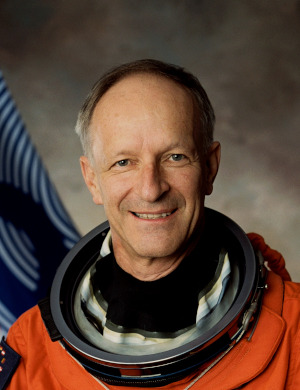
Claude Nicollier
@NicollierClaude
Claude Nicollier was born in Vevey, Switzerland, in 1944. He became an astrophysicist after studies in physics in Lausanne and astrophysics in Geneva. He also trained as a Swiss Air Force pilot and as an airline pilot. He is a graduate of the Empire Test Pilot’s School, Boscombe Down, United Kingdom, class of 1988. His service with the Swiss Air Force was a part time activity from 1966 to 2004, and he flew on the Venom, Hawker Hunter and F-5E Tiger aircraft types. He was active as a First Officer on the DC-9 aircraft with SWISSAIR from 1974 to 1976.
He is currently a member of Space Innovation in Lausanne, Switzerland, and honorary Professor at the Swiss Federal Institute of Technology. He teaches a Masters level course entitled "Space Mission Design and Operations", also accessible on line as a MOOC course provided on the edX platform.
He is also a member of the Federal Commission for Space Affairs, which advises the Federal Council on matters related to the space policy of the Swiss Confederation. Occasionally, he serves as scientific and technical advisor for Masters or Doctoral students working at EPFL on space related subjects.
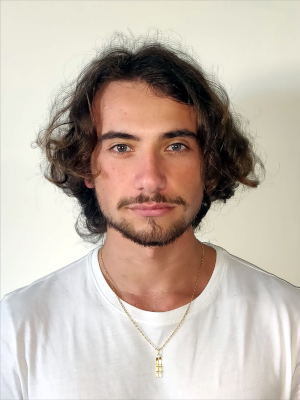
Kevin Pahud
@Spaceatyourserv
Kevin Pahud studies Energy Science and Technologies at EPFL, where he is busy combining his knowledge towards a more sustainable society and bringing science communication about astronomy, space missions and space engineering through various public events and social media.
He is one of the founding members of Space@yourService, which organizes Astronomy on Tap events in Lausanne and other various outreach events, and currently organizes Mission Asclepios: a do-it-yourself student-led space analogue mission.
His interests include combining space technologies and new energy systems for a cleaner industry.
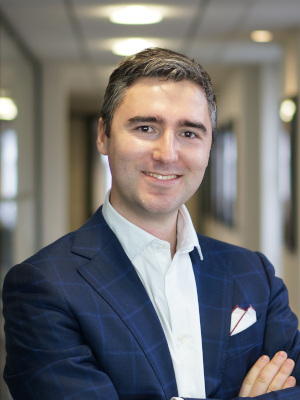
Maxime Puteaux
@maximeputeaux
As a Principal advisor Maxime manages from end to end consulting assignments related to upstream activities in the satellite value chain such as launch, manufacturing and in-orbit operations and broadband services. He joined Euroconsult in 2012.
Maxime is the editor of the Euroconsult’s 4th and 3rd Prospects for the Small Satellite market, a trusted market analysis on the segment and contributed to the rapid sales growth of the product. Since 2019 he is charge of Satellites to be Built & Launched in the Next Ten Years, one Euroconsult’s flagship research reports.
More recently he focused on new entrants and innovative services and supported the diversification of the company towards the so called New Space or space 4.0 through various products and services. He manages FinSpace, a startup pitch competition featuring the most disruptive startups and high level jury during Euroconsult’s World Satellite Business Week since 2017.
Maxime is a recognized expert and is regularly invited as a panelist or speaker in various professional events. He is also regularly interviewed by national newspaper or TV to comment the evolution of the industry.
Some of the main activities Maxime performs at Euroconsult on behalf of industry, investors and government players include:
• Project Manager of large studies, as a framework contract for CNES, the French space agency
• Support to strategic investment and M&A
• On-site support to the creation of a space agency in an emerging country
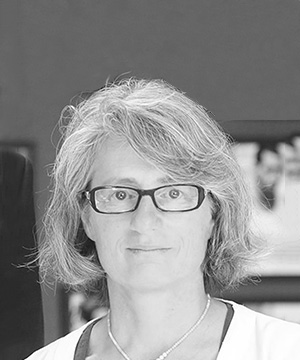
Muriel Richard-Noca
@ClearspaceToday
Eight countries are involved in the ClearSpace project: Switzerland, the UK, the Czech Republic, Germany, Poland, Portugal, Romania and Sweden. Luc studied at EPFL, with a degree in Electrical Engineering and an Executive Program at Stanford GSB.
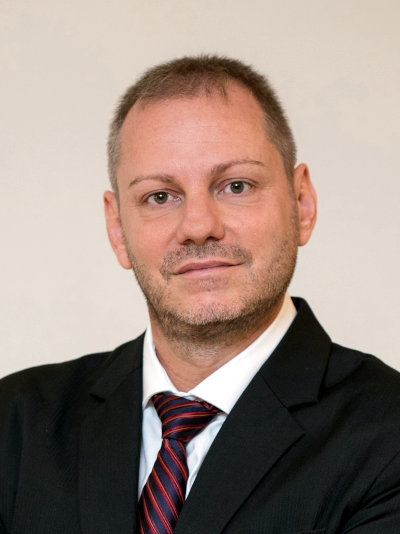
Luca Rossettini
@D_Orbit
Luca Rossettini is CEO and Founder of D-Orbit, Expert at the Space Advisory Group of the European Commission, President of AIPAS (space SME industrial association) and Board member of Confindustria Florence. He is also board member and founder of The Natural Step Italia.
In 2008, Rossettini co-founded Imaging and Research Technology Association, where he held the position of President until 2011.
He is an aerospace engineer with a Ph.D. in advanced space propulsion, awarded with honors by Politecnico di Milano. He holds a master in Strategic Leadership Towards Sustainability and a Certificate in Technology Entrepreneurship from Santa Clara University, California.
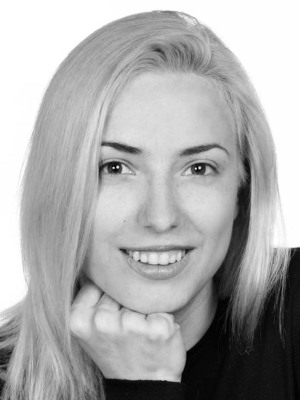
Anne-Marlène Rüede
@annmarleneruede
Anne-Marlene is a space and extreme environment architect from the Swiss Polytechnic Federal Institute in Lausanne (EPFL), where she studied architecture and space technologies. She has worked on various projects, including satellite design, Mars human exploration mission planning, and space habitat design. She currently works on sustainable space logistics at the EPFL Space Center (eSpace) as a Ph.D.
Her interests include decision-making methods for system architecting in space and possible spin-off applications on Earth. Therefore, she also serves as a coordinator for the Space Generation Advisory Council’s Space Safety and sustainability project group.
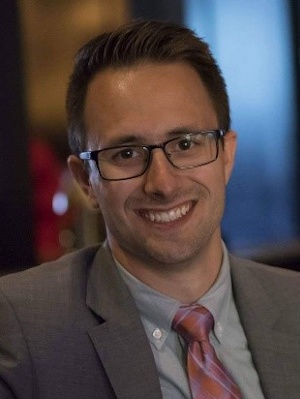
Jeremy Schiel
@JeremySchiel
Jeremy Schiel, co-founder, and Chief Development Officer of Orbit Fab, is a forward-thinking international business professional with an unwavering vision and passion for the space industry. Mr. Schiel leads the business development and marketing activities at Orbit Fab working with the US Government and commercial companies to enable persistent maneuverability through refueling.
Mr. Schiel also sits as Vice-Chairman of The Consortium for Execution of Rendezvous and Servicing Operations (CONFERS), an industry-led initiative with initial seed funding provided by the Defense Advanced Research Projects Agency (DARPA) that aims to leverage best practices from government and industry to research, develop, and publish non-binding, consensus-derived technical and operations standards for OOS and RPO. These standards would provide the foundation for a new commercial repertoire of robust space-based capabilities and a future in-space economy.
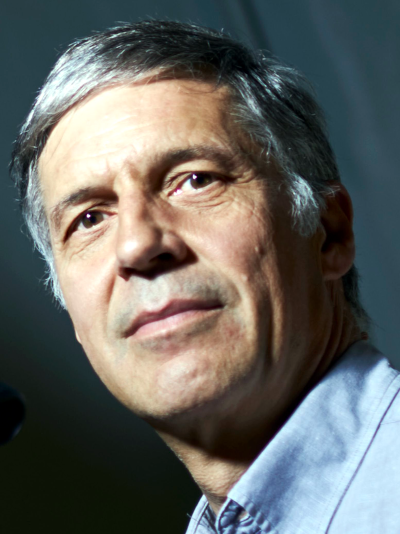
Thomas Schildknecht
@unibern
Prof. Dr Thomas Schildknecht is a leading expert on space debris, space safety and space sustainability. Under his leadership for more than 25 years, his research group has acquired a World-class expertise in the observation and the characterization of space debris. He is the Director of the Swiss Optical Ground Station and Geodynamics Observatory Zimmerwald and the Vice-Director of the Astronomical Institute of the University of Berne (AIUB), Switzerland. At both national and global level, he has served and continues to serve in numerous technical and policy-making committees.
Among them for many years as a member of the ESA delegation in the Inter-Agency Space Debris Coordination Committee IADC, where he lead a working group, coordinated action items and participated in the negotiations of the IADC Space Debris Mitigation Guidelines. He is a member of the Swiss delegation at UNCOPUOS and substantially contributed to the work of its working group on long-term sustainability of outer space activities. He is currently the Chair of the ESA Space Safety Advisory Group advising the ESA Director responsible for the space safety programme. At national level he was elected member of the Federal Commission for Space Affairs. Thomas Schildknecht is a full member of the international Academy of Astronautics IAA, President of the Swiss National Committee of the IAU, outgoing member of the American Astronautical Society (AAS) Space Surveillance Committee, and served in the board of several international associations.
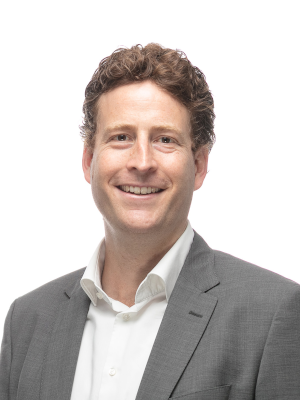
Joost van Tooren
@vanToorenJoost
Joostvan Tooren joined ArianeGroup in 2015 and is currently responsible for business development of new Space Logistics Services within the Future Programmes directorate. In this role, he is setting up new services and capabilities for space transportation, implementing parts of the work he performed during his previous 3 years in the strategy department, where he was responsible for the Research & Technology and Innovation strategy of the company.
Before joining ArianeGroup, he worked at Airbus Defence and Space - Military Aircraft in Munich, Germany, where he was responsible for Flight Guidance for fighter aircraft and drones and later on for all Flight Critical Systems and Structures for drone programmes including the European MALE RPAS program preparation with Airbus, Dassault and Finmeccanica/Alenia.
Joost van Tooren has an Aerospace Engineering Master of Science degree from the Delft University of Technology in the Netherlands and is currently based in Paris.
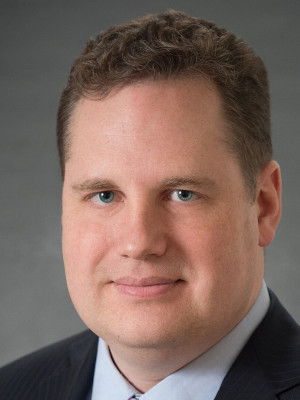
Brian Weeden
@brianweeden
Dr. Brian Weeden is the Director of Program Planning for Secure World Foundation and has more than 20 years of professional experience in space operations and policy.
Dr. Weeden directs strategic planning for future-year projects to meet the Foundation's goals and objectives, and conducts research on space sustainability issues. He is a member and former Chair of the World Economic Forum's Council on the Future of Space Technologies, a former member of the Advisory Committee on Commercial Remote Sensing (ACCRES) to the National Oceanic and Atmospheric Administration (NOAA), and the Executive Director of the Consortium for Execution of Rendezvous and Servicing Operations (CONFERS). Prior to joining SWF, Dr. Weeden served nine years on active duty as an officer in the United States Air Force working in space and intercontinental ballistic missile (ICBM) operations.
Dr. Weeden holds a Bachelor’s Degree in Electrical Engineering from Clarkson University, a Master’s Degree in Space Studies from the University of North Dakota, and a Ph.D. in Public Policy and Public Administration from George Washington University in the field of Science and Technology Policy.
